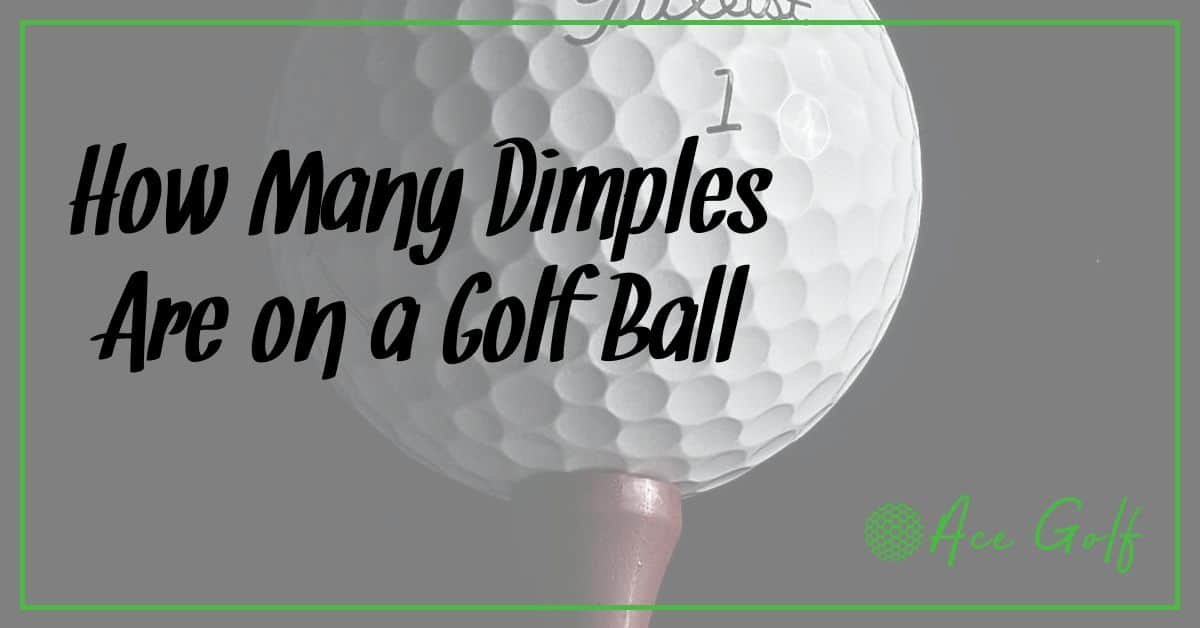Ever noticed how a dirty golf ball can throw off your game? You’re not alone. Keeping your golf balls clean isn’t just about looks; it’s about performance. And guess what? You’ve got a secret weapon right in your pantry: vinegar.
Why Clean Golf Balls Matter
You’ve probably spent a good deal of time perfecting your swing and choosing the right clubs, but have you ever stopped to consider the state of your golf balls? It’s an often overlooked element, but clean golf balls are critical to your game. When you’re aiming to shave points off your score, every little advantage counts.
Dirt and mud can alter the flight of a ball, causing it to veer off course. Even a slight deviation can be the difference between landing on the fairway or ending up in the rough. Golf is a game of precision, and cleanliness ensures consistency. Imagine imparting a perfect spin, only to find that accumulated grime has dampened the effect, robbing your shot of distance and accuracy.
Consider also the role of dimples on your golf ball. These tiny indentations are designed to reduce drag and enhance lift. When they’re filled with debris, their functionality diminishes. The aerodynamics of a clean ball will always be superior, providing a more predictable flight path that you can count on.
Beyond the aerodynamics, there’s the psychological dimension to consider. Playing with clean golf balls boosts confidence. You’re reminded that you’re giving yourself and the game the respect they deserve, which in turn can improve focus and performance. And let’s not forget the simple pleasure of teeing up a gleaming, spotless golf ball. It just feels right, doesn’t it?
Cleaning your golf balls regularly ensures that you’re not unintentionally placing obstacles in the path of your success. By maintaining them with something as accessible as vinegar, you’re committing to a detail-oriented approach to your game. A professional mindset leads to professional-level play, and taking care of the tools of your trade is as professional as it gets.
Regular cleaning also extends the life of your golf balls, making sure that you maximize your investment. You’ll find fewer surprises when your ball reacts exactly how you expect it to, shot after shot.
The Power of Vinegar
When you’re out there on the course, striving to shave off those extra strokes, you know that every little detail counts. Vinegar, a simple household staple, might just be your secret weapon for keeping your golf balls in pristine condition.
Its natural acidity is perfect for breaking down the grime that accumulates during play. You might not realize it, but vinegar’s cleaning prowess extends much beyond the kitchen. This acetic wonder not only dissolves dirt but also tackles those stubborn stains left by grass and soil that seem to cling to your ball after every round.
« Types of Golf Balls Brands: Uncover the Best for Your Budget
Best Way to Chip a Golf Ball: Master Your Short Game with These Pro Tips »
What’s more, using vinegar is a snap. Just a simple solution of vinegar and water, and you have a cost-effective, eco-friendly cleaning agent. It’s not just about the cleanliness; it’s about the integrity of your game. By ensuring your golf balls are spotless, you help preserve those essential dimple patterns that dictate flight stability.
Here’s what you need to know:
- Vinegar is non-toxic, so it won’t harm the grass or wildlife.
- It’s a natural mold inhibitor, which means your golf balls will stay fresh even if they’re stored for a while.
- The anti-bacterial properties of vinegar also eliminate unseen germs that could be hitching a ride.
Using vinegar regularly, you maintain a consistent ball performance, which is critical for assessing your game accurately. After all, you wouldn’t want a layer of mud to be the reason your shot veered off to the left. And when it comes to polishing up your golf balls at home, it doesn’t get easier than vinegar—simply add it to your routine. Start with a dunk, give them a good wipe, and you’re set for your next game, with balls that look and perform as if they’ve just come out of the box.
How to Clean Golf Balls with Vinegar
Cleaning your golf balls with vinegar isn’t just about maintaining their shiny look; it’s about preserving the very features that give you those precise shots you’re known for. Let’s tackle this straightforward yet vital cleaning process together.
Start by gathering your essentials. You’ll need a bucket, plain white vinegar, water, and a soft-bristle brush or an old toothbrush. Make sure you’re ready to give each ball individual attention, ensuring a consistent clean across all your golf tools.
Pour equal parts vinegar and warm water into the bucket, just enough to submerge your golf balls. You’ll be going for a depth that allows the balls to soak without them piling on top of each other.
Let’s submerge those golf balls in the vinegar solution. Let them soak for about 20 minutes. The time you spend here might vary slightly depending on how dirty your golf balls are, but 20 minutes generally does the trick to break down most grime.
After the soaking period, grab your soft-bristle brush. Gently but thoroughly scrub each ball to remove any remaining dirt. Pay special attention to the dimples, as dirt lodged in these tiny grooves can severely affect your ball’s flight pattern.
Once you’re satisfied with the scrub, rinse each ball with clean water. This step eliminates any leftover vinegar which, if left to dry, might affect the ball’s surface.
Lay out your golf balls on a clean, dry towel and let them air dry completely or pat them down if you’re eager to get swinging again. As they dry, marvel at how something as simple as vinegar can make your golf balls look and perform as if they’re fresh out of the box. With your balls now sparkly clean, your next round is set to be not just one of skill but of unimpeded, precise aerodynamics.
Important Considerations
When you’re getting ready to revitalize your golf balls with vinegar, it’s not just about dunking them in the mixture and hoping for the best. There are a few key points you’ll want to pay attention to if you’re aiming to maintain the quality of your game.
Vinegar Strength and Duration matter tremendously. You’re not looking to weaken the outer layer of the ball by soaking it for too long. Typically, a solution of equal parts water and white vinegar should do the trick. Soak your golf balls for about 20 to 30 minutes. Any longer might start to compromise the integrity of the ball.
Be mindful of the Type of Golf Ball you’re cleaning. If you’re playing with high-quality urethane cover balls, they could be more susceptible to damage from harsh cleaning agents. Although vinegar is relatively gentle, it’s still a good idea to keep an eye on how different balls react to the solution.
Cleaning Frequency is another aspect you’ll want to consider. Cleaning your golf balls after every game is a good practice, but a thorough vinegar soak might be best reserved for balls that have encountered particularly dirty play. You know that clean golf balls are a must for accurate shots; just don’t overdo the cleansing process.
Remember, the goal is to maintain the ball’s Performance Features. Pay extra attention to the dimples as you’re scrubbing. The aerodynamics of your ball play a crucial role in your game, so ensure those dimples are clear of debris after cleaning without being too abrasive.
Lastly, consider the environment. Eco-Friendliness of your cleaning process matters. Vinegar is a safe bet, being natural and biodegradable. It’s a smart choice for the earth-conscious golfer looking to keep both their golf balls and the course in top condition.
Keep Your Game Strong
When you’re a dedicated golfer, you understand the subtle ways a clean ball can improve your game. Dirt and grime can alter your ball’s aerodynamics, leading to less control and unpredictability in flight. That’s where your newfound vinegar-cleaning method shows its worth. You’ll maintain the pristine condition of your golf balls, ensuring a consistent game every time you hit the links.
Regularly using vinegar to clean your golf balls is a form of meticulous maintenance that pays dividends on the course. Remember that different balls may respond differently to the soaking process. High-performance balls with specialized coatings or designs require a gentle touch to preserve their engineered characteristics. Always check the manufacturer’s recommendations before soaking any high-end golf balls.
To keep the performance of your golf balls at its peak:
- Use a soft brush or cloth to gently scrub the ball’s surface after soaking in vinegar.
- Rinse thoroughly with water to avoid any residue that might affect the ball’s flight.
- Dry with a towel immediately, as prolonged moisture exposure post-cleaning can affect the cover.
Be mindful of the frequency of cleaning your golf balls. While you want them to be debris-free, over-cleaning can lead to wear and potentially compromise the ball’s integrity. A good rule of thumb is to clean them when visible dirt accumulates or performance seems impacted.
As you perfect your swing, your attention to the small details is what sets you apart. By incorporating vinegar into your cleaning routine, you’re not just keeping your golf balls clean—you’re committing to precision and consistency in every aspect of your game. This reflects the sharp focus it takes to be a low handicapper, always looking for that extra edge.
Conclusion
Frequently Asked Questions
Can I use any type of vinegar to clean golf balls?
Regular white vinegar is recommended for cleaning golf balls as it is effective and gentle on the ball’s surface.
How long should I soak golf balls in vinegar?
Soak the golf balls for about 10 to 15 minutes to ensure proper cleaning without damaging the exterior.
Is it safe to clean all types of golf balls with vinegar?
Most golf balls can be safely cleaned with vinegar, but always check the manufacturer’s recommendations first.
How often should I clean my golf balls with vinegar?
Clean your golf balls with vinegar only when they are visibly dirty or have lost their shine, to maintain their condition without over-cleaning.
Does vinegar affect the performance features of golf balls?
When used properly, vinegar will not affect the aerodynamics or performance features of golf balls.
What should I use to scrub the golf balls after soaking them in vinegar?
Use a soft brush or cloth to gently scrub the ball’s surface after soaking, ensuring not to scratch or damage the ball.
Is it necessary to rinse the golf balls after cleaning with vinegar?
Yes, thoroughly rinse the golf balls with water to remove any vinegar residue and avoid impact on the ball’s flight.
What is the environmental impact of using vinegar to clean golf balls?
Using vinegar is eco-friendly and a safe alternative to harsh chemical cleaners, reducing your environmental footprint.











